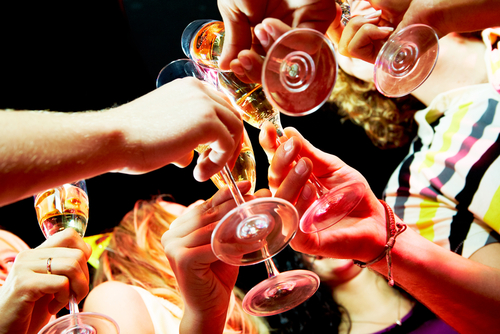I hold the unpopular opinion that technology – more specifically the proliferation of social media – is not intrinsically “good” in any sense. Social media is, however, important, and I propose we raise our glasses of good cheer to what social media and its related technologies have wrought around the world this past year and the good it will, in real terms, do in the future.
The great lie of social technology is that propagandists fear it for its ability to connect us in unified opposition. This is untrue. A status update cannot rally a crowd in flux. There are far superior tools to do this in a protest environment, namely SMS and good old “shouting.” Facebook is useless when soldiers are firing into your Google Plus circle.
What social media does and has done is reduce the barriers between people and expose the lie that any one place is better than the other. It also shows us, in very real terms, that humans are humans wherever they are. This is what frightens dictators and false potentates the most: the great leveling of human experience.
China is not afraid of Twitter because it can rally millions. It can’t. A retweet is not a bullet in the gun of anti-fascism. China’s government is afraid of Twitter because it is not beholden to their version of the truth and the truth, as they say, will set you free (at least free enough to vent your rage against economic and social inequality). It is impossible to police many social networks and, as such, it’s impossible to maintain control of the reigning philosophy. The mundanity of Twitter, for example, exposes the theocrat’s lie that Western civilization is decadent and depraved. The status updates of the average music lover in Iran is the same as the status update of the average music lover in Scranton (“Cee-lo sucks!”) This leveling is dangerous to those who would keep it secret in order to maintain the notion we are intrinsically different and that our differences will never allow us to see eye-to-eye.
It’s impossible for politicians to condemn homosexuality, atheism, and other “moral” issues when millions of people tweet their support of these very concepts every day. “It gets better,” they say. “And you are not alone.”
When the Berlin Wall fell in 1989, North Korean propagandists showed the middle class images of high-ranking East German officials selling sausages on the street, the message being “Look how far the mighty have fallen.” What they didn’t show was my friend’s East German wife – about seventeen at the time – crossing the border into West Berlin to stay with a family of strangers for a week just because she could. She literally just picked a house, knocked on the door, and they invited her in.
Her parents let her go because they knew she needed to see what was lie and what was truth in the post-Soviet world and the West Germans welcomed her because they were happy to share what they knew.
And that’s the real value of social technology. It allows us to see each other as we are – drunks, flirts, poets, photographers, and friends. Why else would Rupert Murdoch open a Twitter account if not to show us that he’s just one of us, phone-hacking be damned. He loves “Geo Clooney” with all of his sclerotic heart, dammit, and he’s not afraid to tell us. He wants to be one of us and maybe he will succeed – at least until his Executive Tweeter gets drunk one night and exposes the quack behind Oz’s curtain.
When despots and oligarchs attempt to use social media in this way, we’re reminded that they crave power. I wouldn’t be surprised if North Korea started tweeting in its own special way (“Sh#t My Great Leader Says?”). I feel that Arab Spring dictators didn’t use Twitter because they did not understand it enough to see its value to their cause and, more important, it was already too late.
Social media isn’t always great. It doesn’t help us. It is, in many cases, a hindrance and a terrible distraction. But it exists, just as any other media exists, and it is important. It is a creative force (for good or ill) and it allows us normal humans to express our desires, our victories, and the stories of our daily lives in a way that is unprecedented. It is a mundane Uncle Tom’s Cabin, a window on the inequality of our lives, and more important, the window that inspires the average person to see how similar we all are in the end.
And it’s this ability to unite us as a single, global culture, a mash of music, movies, games, sport, and celebrations, that lets us see not the fallen mighty but the girl in the cold, knocking on a stranger’s door, asking to see what’s inside.
